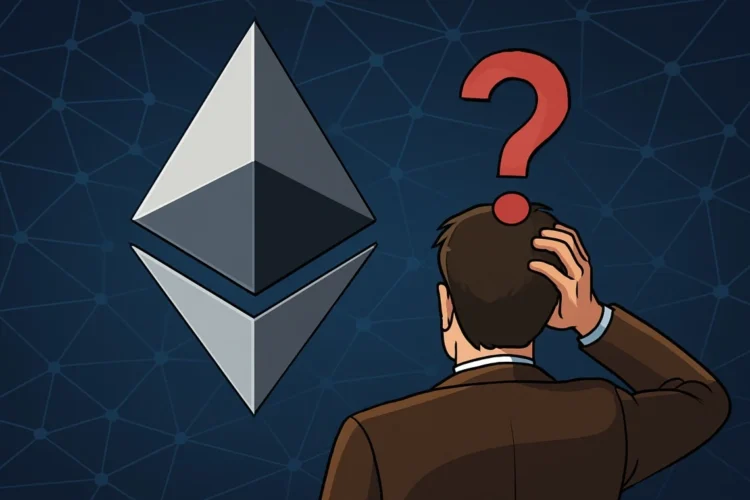If you’ve used Ethereum long enough, you’ve probably encountered a stuck transaction—one that sits in a “pending” state far longer than expected. This issue is especially common during periods of high network activity or when gas fees are set too low. When this happens, you’re left wondering if the transaction went through, whether you need to resend it, or if your funds are safe.
The good news is: stuck transactions are fixable, and in many cases, preventable. Whether you’re sending ETH, minting NFTs, swapping tokens, or interacting with smart contracts, understanding how Ethereum transactions work can save you time, money, and a lot of frustration. This guide will walk you through why transactions get stuck, what each transaction state means, and the specific steps you can take to cancel, replace, or prevent these issues entirely.
Let’s begin by breaking down how Ethereum transactions work and what happens behind the scenes when you hit “Send.”
Understanding Ethereum Transactions
Whenever you send ETH, interact with a smart contract, or trade a token, you’re creating a transaction that needs to be confirmed by the Ethereum network.
Ethereum uses a proof-of-stake (PoS) mechanism, where validators are selected based on the amount of ETH they’ve staked. These validators confirm and add transactions to blocks, ensuring the network stays secure and decentralized.
Common Ethereum Transaction States
Once you submit a transaction, it can move through several possible states:
- Pending: The transaction is waiting to be picked up by a validator. This often happens when the gas fee is too low or the network is congested.
- Queued: The transaction is stuck behind an earlier one from the same account that hasn’t been confirmed yet. Ethereum processes transactions sequentially based on nonce order.
- Cancelled: The transaction was invalidated by submitting a new transaction with the same nonce but no value and a higher gas fee. This prevents the original one from executing.
- Replaced: The original transaction was modified—typically by increasing the gas fee—to make it more appealing to validators. It keeps the same nonce and data but speeds up processing.
- Failed: The transaction made it into a block but failed to execute, often due to insufficient gas or a smart contract error. These are recorded on-chain but do not complete the intended action.
RELATED: What is Gwei and Why It Matters for Ethereum Users
Why Ethereum Transactions Get Stuck
Ethereum transactions sometimes remain in a “pending” state longer than expected, leaving users frustrated and unsure of what went wrong. Ethereum relies on a decentralized network where transaction speed depends on multiple factors. These include:
Insufficient Gas Fees
Ethereum transactions require gas fees to incentivize validators to include them in a block. If your gas fee is too low compared to the current network demand, validators will likely prioritize higher-paying transactions, leaving yours pending indefinitely.
Network Congestion
When the Ethereum network is experiencing high traffic, such as during major NFT drops or DeFi activity, gas prices surge due to increased competition for block space. Transactions with lower fees may experience significant delays.
Nonce Issues
Ethereum processes transactions in sequential order based on a unique identifier called a nonce. If an earlier transaction remains unconfirmed, subsequent transactions from the same account will be stuck in the queue until the earlier one is processed or replaced.
How to Fix a Stuck Ethereum Transaction
Ethereum transactions sometimes get stuck in a “pending” state, and it can feel frustrating, like sending a message that never gets delivered. But don’t worry! You have two main solutions to fix it:
Method 1: Speeding Up a Stuck Transaction
When a transaction gets stuck, it often means the gas fee was too low. Ethereum validators (miners) prioritize transactions with higher fees, so you can speed up your transaction by offering a better reward. Simply go to your wallet interface and use the relevant feature to adjust your gas fee.
Doing this replaces your old transaction with a new one that has the same details but a higher gas fee, making validators pick it up faster.
Here is how you can speed up your transactions with MetaMask (or Similar Wallets)
If you use MetaMask, here’s how to do it:
- Open MetaMask and go to the Activity tab.
- Find your pending transaction and click “Speed Up.”
- Increase the gas fee (you can check Etherscan Gas Tracker to find the best fee).
- Confirm and submit the new transaction.
If your wallet doesn’t have a “speed up” option, you can manually replace the transaction:
- Find the nonce of the stuck transaction (check Etherscan for this).
- Send a new transaction with:
- The same nonce as the stuck one.
- A higher gas fee to push it through.
- Optionally, send 0 ETH to yourself—this tricks the network into dropping the old transaction.
If you often deal with slow transactions, consider using a slightly higher gas fee from the start to avoid delays.
Method 2: Cancelling a Stuck Transaction
Maybe you changed your mind, or made a mistake, whatever the reason, you want to cancel the transaction. You can only do this while the transaction is still pending.
Here is how you can cancel a transaction in MetaMask
- Open MetaMask and go to the Activity tab.
- Find the pending transaction and click “Cancel.”
- Confirm the cancellation.
How does this work? MetaMask sends a new transaction with the same nonce, but no value, which tells the network to drop the original one.
If your wallet doesn’t have a cancel button, you can do this instead:
- Find the stuck transaction’s nonce (check Etherscan).
- Enable “Custom Nonce” in your wallet settings.
- Send a new transaction to yourself, using:
- The same nonce as the stuck transaction.
- A higher gas fee to push it through.
Since Ethereum processes transactions in order, this new one will replace the stuck one.
How to Prevent Stuck Transactions
Ethereum transactions can get stuck due to low gas fees, network congestion, or nonce issues. To avoid these problems, here are some practical steps to ensure smooth and efficient transactions.
1. Choose Appropriate Gas Fees Based on Network Conditions
Setting the right gas fee is crucial for timely transaction processing. If you set your gas fee too low, validators may ignore your transaction, causing delays. To avoid this, always check the current gas prices before sending a transaction. During high-traffic periods, fees tend to spike, so adjusting your gas price accordingly increases the chances of quick confirmation.
2. Increase Gas Fees for Stuck Transactions
If a transaction gets stuck, you can speed it up by sending a replacement transaction with the same nonce but a higher gas fee. Most wallets, like MetaMask, offer a “Speed Up” or “Replace” option that lets you adjust the gas fee to ensure faster confirmation.
3. Use Tools Like Etherscan or Gas Trackers
Gas prices fluctuate based on network activity, so monitoring them in real time is essential. Platforms like Etherscan’s Gas Tracker provide up-to-date gas fee estimates, helping you decide the right amount to pay. Many wallets also integrate gas tracking tools, allowing you to set fees that balance speed and cost efficiency.
RELATED:
4. Avoid Multiple Pending Transactions
When sending multiple transactions, Ethereum processes them in order based on their nonce (a unique transaction number). If an earlier transaction is stuck, later ones won’t go through until the first one is confirmed. To prevent this, wait for each transaction to be processed before submitting another, or manually adjust the gas fee of a pending transaction to speed it up.
Final Thoughts
Stuck Ethereum transactions can be frustrating, but understanding why they happen and how to fix them makes a big difference. Low gas fees, network congestion, and nonce issues are the most common causes, but with the right approach, you can avoid delays and keep your transactions running smoothly.
Before submitting a transaction, always check gas prices to ensure you’re offering a competitive fee. Monitoring network conditions using tools like Etherscan or gas trackers can help you make informed decisions, reducing the chances of delays. It’s also important to avoid multiple pending transactions that could interfere with processing and cause further complications.
By staying informed and using the right strategies, you can navigate Ethereum transactions with confidence. Whether you’re trading, sending ETH, or interacting with smart contracts, taking a few extra steps can save you time and frustration.
Disclaimer: This article is intended solely for informational purposes and should not be considered trading or investment advice. Nothing herein should be construed as financial, legal, or tax advice. Trading or investing in cryptocurrencies carries a considerable risk of financial loss. Always conduct due diligence.
If you would like to read more articles like this, visit DeFi Planet and follow us on Twitter, LinkedIn, Facebook, Instagram, and CoinMarketCap Community.
Take control of your crypto portfolio with MARKETS PRO, DeFi Planet’s suite of analytics tools.”





















